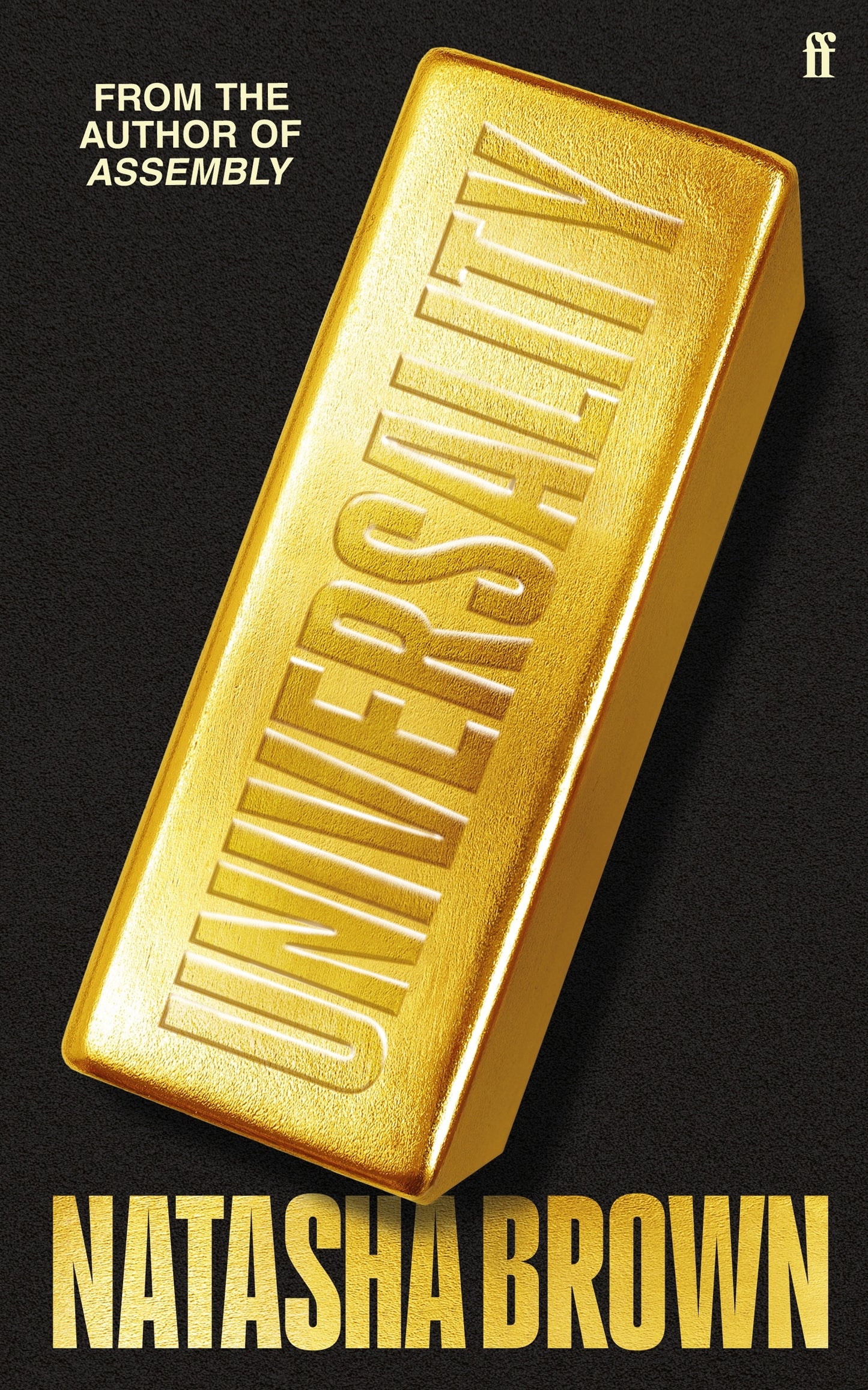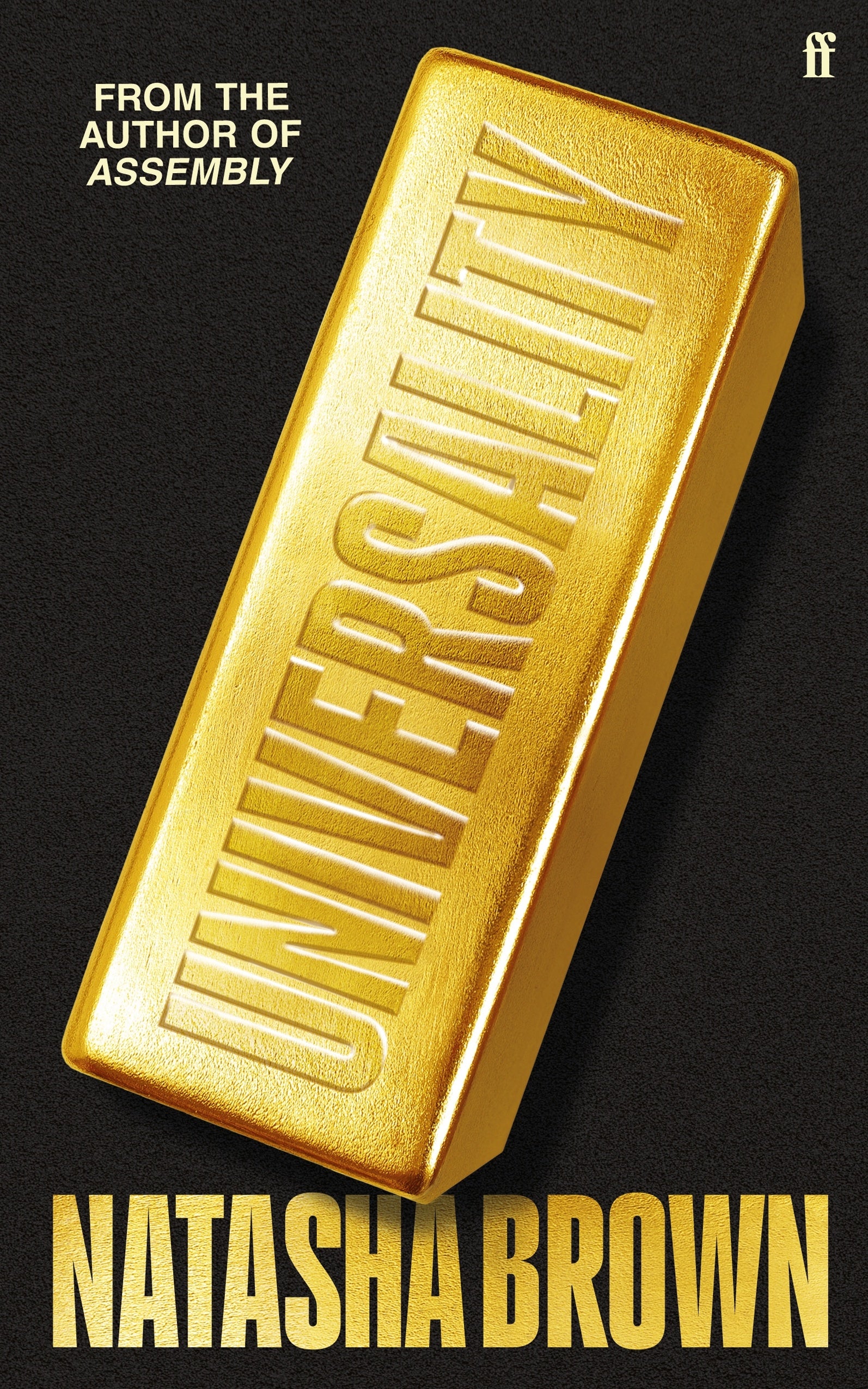Natasha Brown
Universality
Universality
Couldn't load pickup availability
Publishes 01/04/2025
Sam's Review
Natasha Brown's debut novel Assembly portrayed the insidious effects of racism in just 100 elegantly exact pages. Her follow-up book, Universality, is almost as brief and just as potent. This time the subject of her precision-tooled paragraphs is writing itself. She shows us how facts and details are pushed to the side in favour of an appeal to the heightened emotions that gain attention and “likes” on social media.
The story is told in 5 chapters, each from a different perspective. It begins with a news article about a missing gold bar, a group of squatters and an investment banker. The article, while reporting the incident, also comments on class inequality and greed. The direction for the novel seems set. But nothing is straightforward with Brown's storytelling. Paths are laid and routes mapped out, only for the plot or point of view to disappear around an unseen corner.
From the news article we jump to a dinner party hosted by its writer. As the writer tries to reingratiate herself with her university friends, the spectres of class snobbery and the internet’s alt-right rabbit holes begin to loom. Onwards we go to witness the fallout from the article on the investment banker, and then to the mid-career resurgence of a long-established commentator. And finally, to said commentator’s appearance at a literature festival.
There are no heroes in Universality; no one to root for. A lesser writer than Brown would have placed someone sympathetic at the heart of the story. Instead, we have a cast of deeply flawed, often unlikeable but nevertheless multi-faceted characters. The complexity and deftness of Brown’s characterisation, as well as the agility of her storytelling, kept me second-guessing my assumptions and questioning my biases. Most importantly, this is a book about the political power of language. As the commentator is guided to the stage of the literature festival, she says to her companion: “Remember — words are your weapons, they’re your tools, your currency.” Brown is a very wealthy warrior indeed, and one fighting with great skill against the lazy preconceptions and half-baked arguments that continue to fester in the news and on social media.
Publisher's Review
A must-read novel of 2025 in The Guardian, Sunday Times, GQ, ELLE, Waterstones and Good Housekeeping, among others.
In the new novel from the author of Assembly, a viral longread expos raises more questions than it answers.
Remember - words are your weapons, they're your tools, your currency.
Late one night on a Yorkshire farm, a man is brutally bludgeoned with a solid gold bar.
A plucky young journalist sets out to uncover the truth surrounding the attack, connecting the dots between an amoral banker landlord, an iconoclastic columnist, and a radical anarchist movement. She solves the mystery, but her viral longread expos raises more questions than it answers.
Universality is a twisty, slippery descent into the rhetoric of truth and power. Through a voyeuristic lens, it focuses on words: what we say, how we say it, and what we really mean. The follow-up novel to Natasha Brown's Assembly is a compellingly nasty celebration of the spectacular force of language. It dares you to look away.
'Brave, wry, cool, and thrilling.' - Andrew O'Hagan
'Original, vital, and unputdownable.' - Tess Gunty
'Breathtaking ... a precise dissection of class, wealth and power.' - Elizabeth Day
Share


